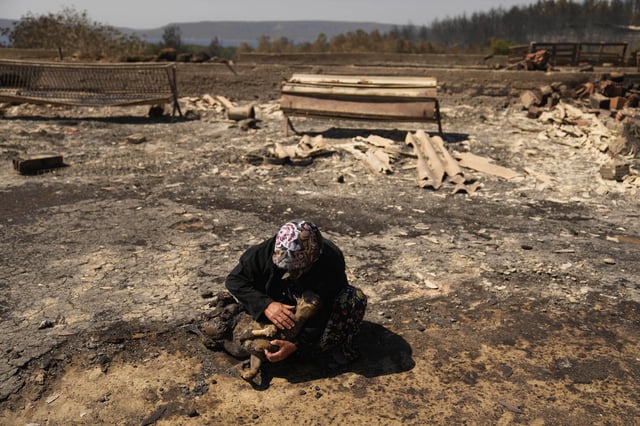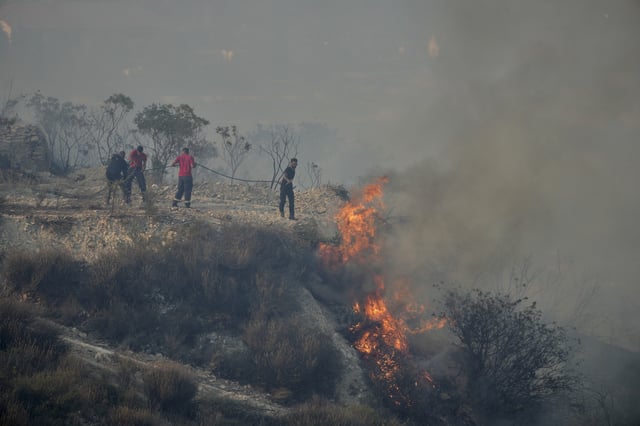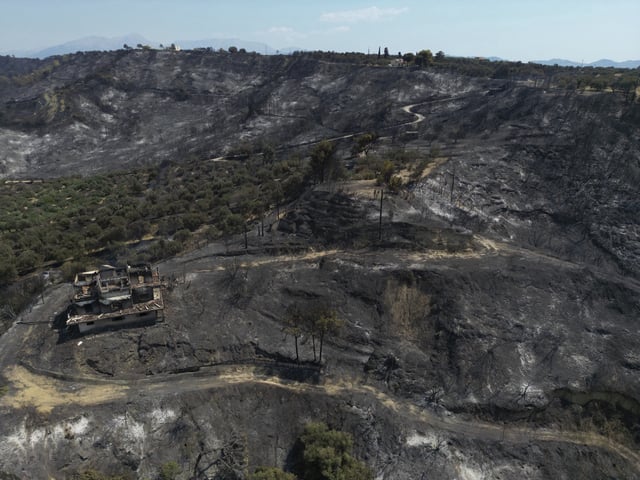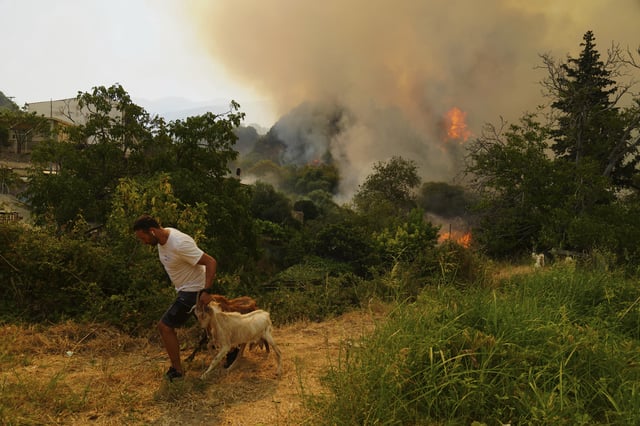Overview
- In the first rapid attribution for a European wildfire season, World Weather Attribution reports the hot, dry, windy conditions were about 22% more intense and roughly 10 times more likely because of climate change.
- Europe’s 2025 fire season is the worst on record, with more than 1 million hectares burned, about 20 deaths and approximately 80,000 evacuations.
- The outbreaks were driven by repeated days above 40°C, a roughly 14% decline in preceding winter rainfall, parched vegetation and strengthened Etesian winds.
- Without warming, such extreme fire-weather periods would occur about once a century; with today’s roughly 1.3°C of global warming, they are expected about once every 20 years.
- Researchers warn simultaneous, fast-moving fires are outpacing prevention and stretching response capacity, with current-policy warming toward ~2.6°C making similar spells up to nine times more likely and about 25% more intense.



